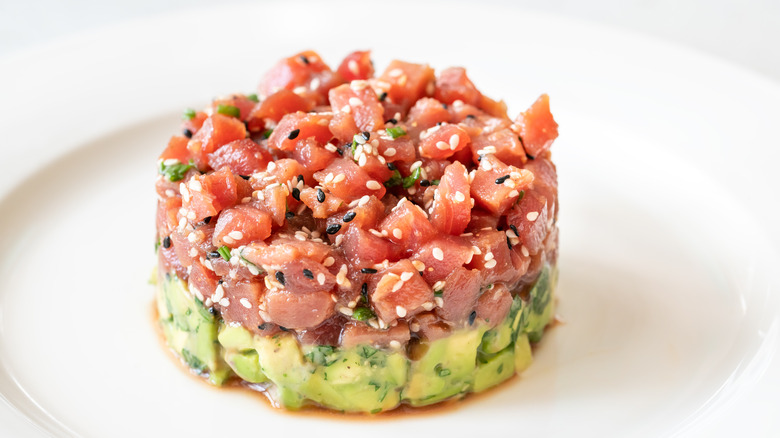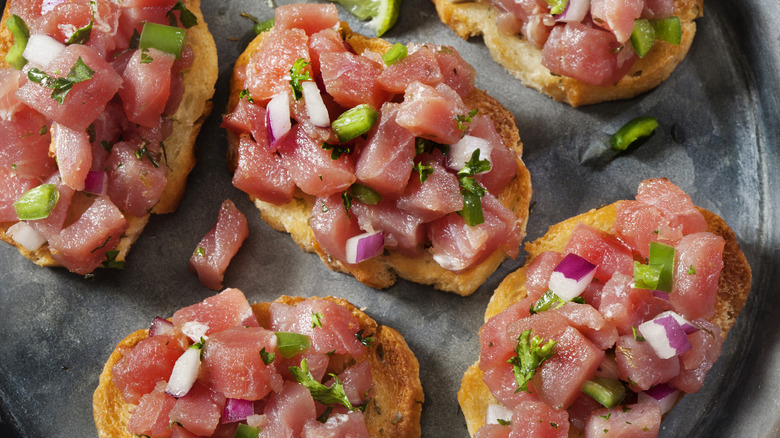Can You Use Frozen Tuna To Make Tartare?
We've come a long way from the days when eating tuna meant merely a tuna salad sandwich. Sure, that meal has its place, but there's no denying that sushi-grade tuna or a nice tuna steak seared rare are far more haute cuisine (and, let's be real, tastier). Another of those dishes is tuna tartare. Unlike beef tartare, where the taste and texture of raw red meat can put people off, tuna tartare seems absolutely made for this sort of composition; it's not really any different from the tuna you'd find in a poke bowl when you think about it.
But preparing it yourself comes with other considerations than just "how does it taste raw?" For starters, if you've stored it frozen (which, in general, is a great way to keep fish fresh), can you use that frozen tuna in tartare? The answer is yes, you can — but there are other considerations you'll need to be aware of. To understand why it works, you have to understand what happens when food freezes.
Fish do well when you freeze them
Freezing food sometimes has the effect of changing its texture. The reason for this is that when food freezes, the water inside it expands; that's what happens when water turns into ice. But while freezing water makes the thing that's frozen bigger, it has a different effect when the water is dispersed throughout a solid food. The water's expansion as it forms ice crystals means the food's cell walls will be damaged, affecting its texture. This is why you want to freeze food as quickly as possible: When food freezes fast, it only has a chance to form smaller crystals, which will do less damage to the cell walls.
This is why you never want to freeze certain foods, like celery, watermelon, and lettuce (all foods with hefty water content and not much firm flesh). But of all the foods you can freeze, fish is one of the best at holding up to the process — particularly a firmer, more steaklike fish like tuna (compared to something flakier like cod). So tartare will hold up to the freezing and thawing process remarkably well, even if it would still be a bit better fresh.
Food safety is still important, whether the tuna is fresh or frozen
So yes, you can absolutely use frozen tuna for tuna tartare — and certain recipes actually call for it to be par-frozen (meaning frozen part of the way) to instill a firmer texture. You still need to be aware of a couple of things when using frozen tuna in tartare, though.
First, though par-freezing can be an effective technique for making tuna tartare, you don't want it to be fully frozen — nobody wants a tuna ice cube. So, if it's been in your freezer for a while, run some cold water over it to make sure it's at least partially thawed out. Second, while raw fish is generally significantly safer to eat than something like raw chicken (a factory for campylobacter and salmonella, per the CDC), you still want to use the highest quality you can find. If you live near the coast and have a local fishmonger, that's going to be your best bet.
Follow these tips, though, and you should feel totally comfortable using frozen tuna for your tartare. Raw fish can be a delight, and tartare is one of the best ways to enjoy it.


